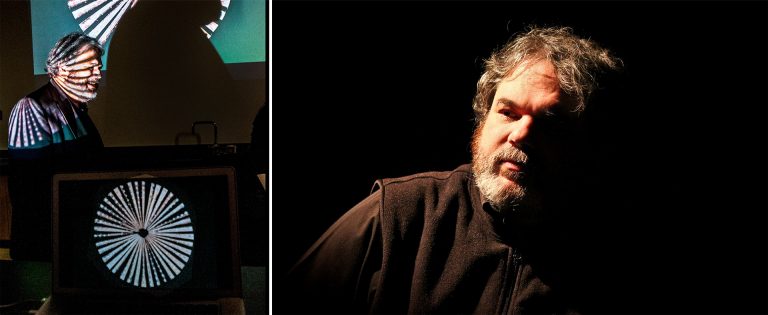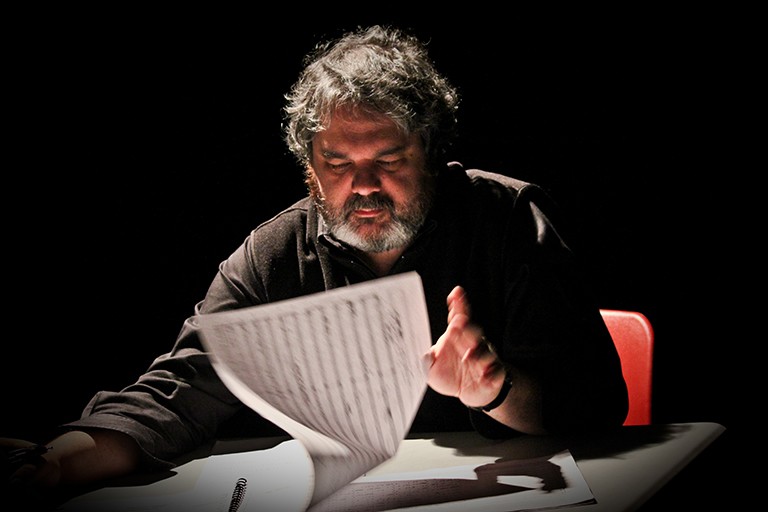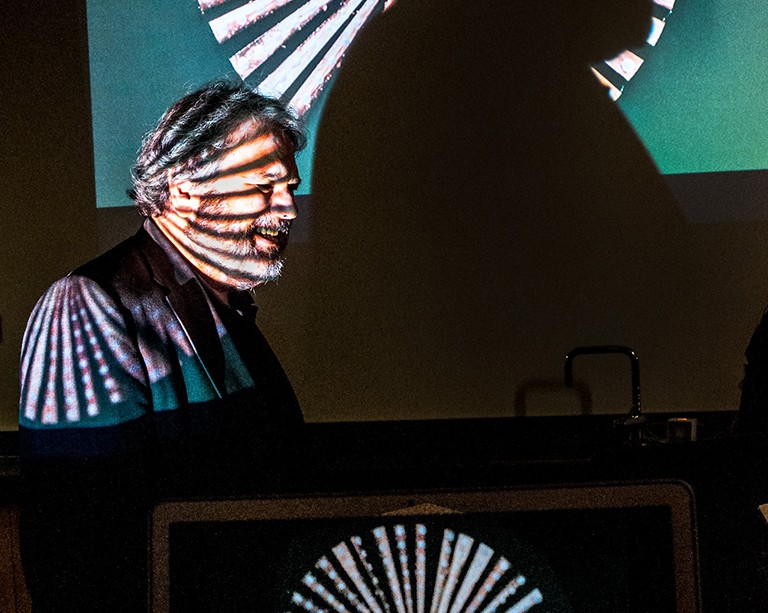Concordia's Sandeep Bhagwati kicks off a busy spring season April 20-21 with two concerts at the Montreal Museum of Fine Arts

Born in Bombay in 1963 and raised in Germany, award-winning composer Sandeep Bhagwati has been active in the avant-garde of classical music composition for decades. His celebrated work transcends musical and cultural boundaries by merging Western, Indian and other influences.
Two upcoming ensemble concerts at the Montreal Museum of Fine Arts (MMFA) are part of the Société de musique contemporaine du Québec's Homage Series showcasing Bhagwati's music. The April 20 to 21 concerts will be all-day, participatory events, featuring soloists from Turkey, Bulgaria, China and Germany.
The concerts kick off a busy spring season for Bhagwati. He will present at the Maison de la culture Ahuntsic-Cartierville on April 24 and the Aga Khan Museum in Toronto on April 28.
A colloquium at Concordia, Music in Difficult Times, from May 3 to 5, will then honour the professor in the Department of Music. He has also been commissioned to compose a cycle of songs for the MMFA’s Salle Bourgie, to be performed later in the year.
'Music is always around us'
What can we expect from the upcoming shows at the Montreal Museum of Fine Arts?
Sandeep Bhagwati: It's an ensemble of musicians from Berlin, along with an ensemble from Montreal, who will take turns playing all day.
I call these ensembles "trans-traditional ensembles" where musicians from different traditions around the world collaborate. We have everything from free-jazz musicians, techno and Bulgarian folk, to Arabian music and Inuit throat singing.
We all create the music by finding how specific combinations of traditions can inspire each other.
And it's a continuous performance that spans the entire day?
SB: Yes, it happens throughout opening hours on April 20 and 21. And the audience can participate, as we provide them with postcards on which there is a poem in a certain mood and a tempo: they can then give these postcards to the musicians, which will change what's played.
 Photo by Matralab
Photo by Matralab
Do all these overlapping musical strains result in tension or harmony?
SB: I usually don't feel any tension. It creates a very calm atmosphere. The only overarching rule is that the musicians must be kind to each other, musically. They can't disrupt each other's music willingly.
You are also incorporating DJs and electronic music. Tell us about that.
SB: The concerts will feature Gebrüder Teichmann, DJs from Berlin. They are super-reactive electronic improvisers who came out of the club scene in the 90s.
What are some of the similarities between today's electronic music and Indian traditions of music?
SB: In India, the drone is a kind of symbol. It represents the eternal presence of sound. In the European tradition, music comes from silence, and silence is uncomfortable. Indian music says, there's always music, it's always around us. Indian music can be more free, because sound is always there, whereas to Western ears, it might seem like there's not much going on. Just the introduction may take two hours, sometimes.
Has the concept of cultural hybridity always been important to you?
SB: Yes, because it was unavoidable in my life. I spent my youth wandering between India and Germany. Both worlds are equally present in my emotional and sensory background. When I told my father I was going into music, he said, why don't you use your heritages to bridge these two cultures? This whole notion of bridging gaps is something that I'm still very interested in.
What are some of your favourite pieces of Western classical, Indian and contemporary pop music?
SB: For classical music, I'll say Stravinsky’s The Rite of Spring, Sibelius' Symphony No. 7, Robert Schumann and Josquin des Prez.
For Indian music, there's a recording that I really like by Nazakat and Salamat Ali Khan, the Raga Darbari, a recording in Cologne in like 1972 or around there. It's very majestic and it has a melodic structure that I really like.
For pop music, I would say Kendrick Lamar. It's so evocative, well composed and orchestrated; I think he's an amazing musician.
Concordia’s Sandeep Bhagwati will be performing April 20 and 21 at the Montreal Museum of Fine Arts (MMFA) as part of the Société de musique contemporaine du Québec's Homage Series showcasing his music.


